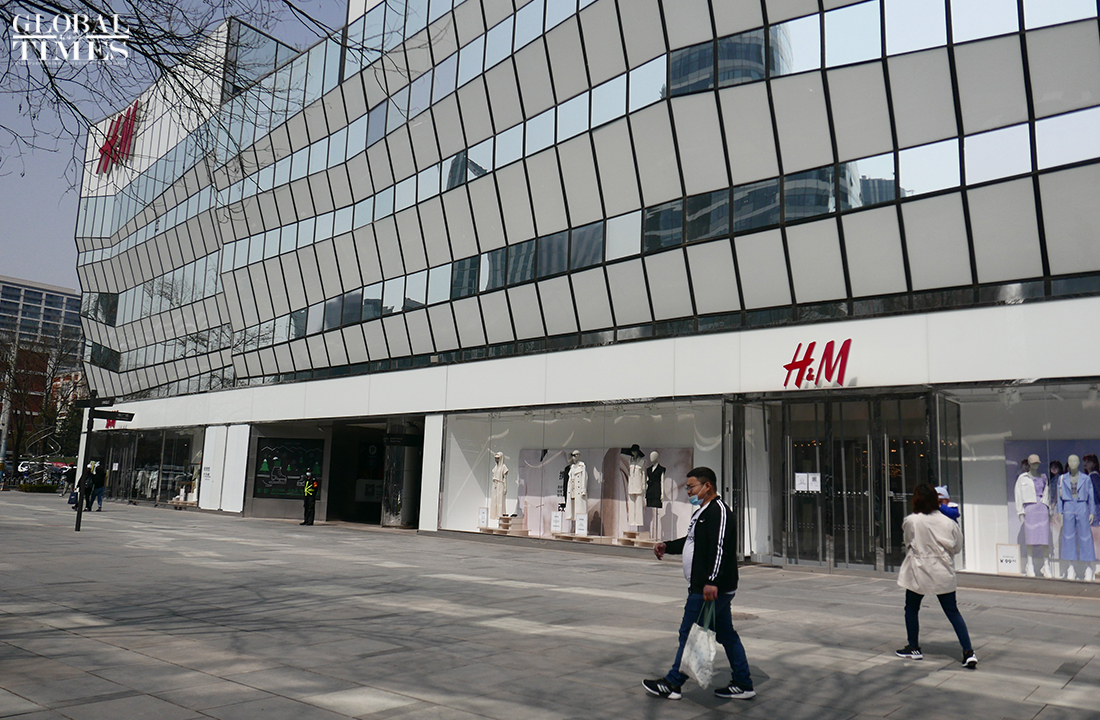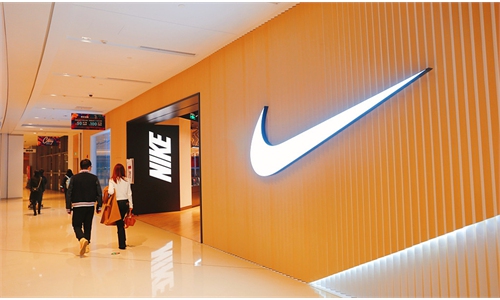
Photo: Li Hao/GT
Has Chinese society been suppressing H&M, Nike and some other multinational companies for their stance over Xinjiang cotton supply issues, as some Western media have claimed? If the Western society finds it hard to understand Chinese people's strong sentiments, then just imagine how the Western public would react if these companies make anti-Semitic remarks in the Western countries.As China and Western countries clash on the Xinjiang issue, public opinion is becoming harsher in many other countries as well. In Western public opinion, opposing China by stepping on its redline has almost become a form of political correctness. Facing such high pressure, H&M did not apologize in its clarification statement on Wednesday after Chinese netizens found the company said, as early as 2020, that it prohibited any type of "forced labor" in its supply chain in Xinjiang, citing so-called human rights concerns, because it fears offending Western political correctness.
Without directly responding to the criticism, H&M said in its statement that the company supports cotton farmers worldwide to adopt more sustainable planting methods to grow cotton. Of course, Chinese people cannot accept such a vague attitude.
H&M cannot really back off because Western public opinion has already regarded the company as a victim of China's so-called suppression, and it is already entrapped in the Western political correctness. During the West's demonization of Xinjiang, many unscrupulous scholars fabricated lies, and many politicians blindly opposed everything China did. And as a multinational company, H&M was under pressure to choose to offend the Chinese market. Western media has now depicted it into a victim of China's fierce crackdown. The Washington Post said the company "has come under official attack" in China. The Wall Street Journal even said it is "under assault."
Chinese people's sentiment is actually not difficult to understand, especially if we take a look at some Western companies that were caught in a public opinion whirlpool due to the anti-Semitic controversy. For example, in 2020 Facebook faced huge pressure because it did not remove denials of the Nazi genocide from its platform. In 2019, the New York Times had to apologize because one of its cartoons was suspected of being anti-Semitic.
Public opinion in China also has its bottom line that cannot be crossed and companies, both domestic and multinational, need to respect that. But obviously, Western public opinion does not accept that Western companies "bow" to China.
For China, this is actually a good chance for its local company to grab more market share. But for H&M and other companies, due to the Western public opinion's double standards and coercion, it is difficult to please both public sentiment in China and the West. They will have to pay for their own words and deeds.
Western public opinion is harsh as well. But the West prides itself for its so-called freedom of speech, pretending no taboo there. However, it criticizes the Chinese public's reaction to the offensive remarks. Western public opinion forced multinational companies, including H&M, to stand out and offend Chinese public. The West has no right to criticize China's public opinion environment - unless H&M has the freedom to apologize for what it said in China.

